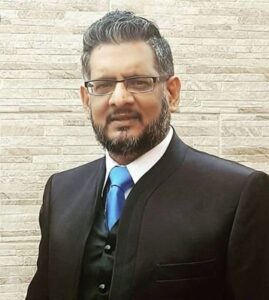By Sue-Ann Wayow
ALTHOUGH announced, migrant children cannot yet enter into the public school system until the law is adjusted to allow for such.
Education Minister Dr Nyan Gadsby-Dolly said on Monday that an additional meeting was to be held that day to discuss the issue of permits to the children who will be attending school initially at the primary level.
She said, “Before migrant children can enter schools, Immigration Division and the AG’s office must work out the issue of student permits. That is ongoing, with a further meeting being held today, September 4. Until the law is adjusted, migrant children cannot enter our schools legally. The first cohort of students to be integrated and the receiving schools, have already been identified. Once the legal arrangements are finalized, they will be registered.”

The clamouring for migrant children to get a public local education was made by the Opposition and other groups in support of the migrants.
The announcement by government was met favourably with some asking that more be done to assist those who may have passed primary school requirements.
However, there are concerns as founder of the La Romaine Migrant Support LARMS Angie Ramnarine points out.
She said chronological age did not equate to academic age and will mean that migrant children would need more attention and prepping for the local school system.
LARMS was founded in March 2019 and aims to provide social, educational and psychological support to the Venezuelan Migrant Community.
Ramnarine told AZP News the suggestion to include the migrant children sounds good in theory but may pose challenges logistically.
While it might be easier for children born in Trinidad to adapt, it may be difficult for children who travelled from Venezuela, some without even a Venezuelan education, she said.
Her suggestion to the Ministry of Education is to put more resources into already established child friendly spaces including human and materials to boost the learning progress of the migrant children where she believes greater learning may take place for children in an older age bracket than the conventional system.
The best solution would have been to integrate as with local children, from the infant level Ramnarine said.
She also said Government would have sufficient time to put all the necessary measures in place for the migrant children to attend school on Monday.
Executive Director for the Caribbean Centre for Human Rights Denise Pitcher also said the children should have started school on Monday and not have to wait any longer as their fundamental right continued to be delayed.
![]()












